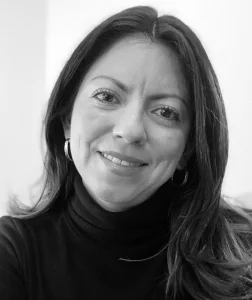Report on the Appointment of Judge Tatiana R. Salvador and Alignment with Sustainable Development Goals
Executive Summary
Fourth Circuit Judge Tatiana R. Salvador has been elected to serve as the chair of The Florida Bar Criminal Law Section for the 2025–2026 term. Her appointment and stated objectives for the section demonstrate a profound alignment with several key United Nations Sustainable Development Goals (SDGs), particularly in the areas of justice, education, equality, and institutional partnerships.
Contribution to SDG 16: Peace, Justice, and Strong Institutions
Judge Salvador’s leadership is poised to directly advance SDG 16, which aims to promote just, peaceful, and inclusive societies by building effective, accountable, and inclusive institutions at all levels.
- Access to Justice: Judge Salvador has affirmed the section’s commitment to “a fair, just, and efficient criminal justice system for everyone,” a core tenet of SDG 16.
- Effective Institutions: With over 2,300 members, including judges, prosecutors, and defense attorneys, the section serves as a critical institution for strengthening the criminal justice system. Judge Salvador’s extensive experience, having overseen more than 100 jury trials and served as an administrative judge, equips her to lead this effort effectively.
- Accountability and Professionalism: Her leadership in the Chester Bedell American Inn of Court, which promotes ethics, civility, and professionalism, reinforces the development of accountable legal institutions.
Advancement of SDG 4: Quality Education
The agenda outlined by Judge Salvador strongly supports SDG 4, ensuring inclusive and equitable quality education and promoting lifelong learning opportunities for all.
- Professional Development: She has pledged that the section will be “dedicated to providing outstanding resources, training, and programming to strengthen our members’ knowledge and skills.”
- Lifelong Learning Opportunities: Specific initiatives will include Continuing Legal Education (CLE) programs, case law updates, and trial skills training, all of which support the continuous professional education of criminal law practitioners across Florida.
- Judicial Training: Judge Salvador’s role as a faculty member for the Office of State Court Administration, training judges statewide, is a direct contribution to quality education within the judiciary itself.
Promotion of SDG 5 (Gender Equality) and SDG 10 (Reduced Inequalities)
Judge Salvador’s career and appointment serve as significant contributions to fostering equality and reducing systemic inequalities.
- Gender Equality (SDG 5): Her election to a high-profile leadership position within The Florida Bar exemplifies the empowerment of women in the legal profession and judiciary.
- Reduced Inequalities (SDG 10): The 2020 “Florida Jurist” award, recognizing her for Hispanic excellence on the bench, highlights progress in promoting diversity and reducing inequalities within judicial institutions. Her Jurist of the Year Award in 2022 further underscores her recognized excellence.
Fostering SDG 17: Partnerships for the Goals
The collaborative nature of the Criminal Law Section under Judge Salvador’s guidance embodies the principles of SDG 17, which calls for revitalizing global partnerships for sustainable development.
- Multi-Stakeholder Collaboration: The section unites a diverse group of legal professionals—judges, prosecutors, defense attorneys, law professors, and students—in a partnership to achieve the common goal of an excellent justice system.
- Call for Engagement: Judge Salvador’s encouragement for members to “make a difference by participating in our committees and activities” is a direct call to strengthen this partnership and collectively advance the section’s mission, thereby contributing to the broader goals of justice and institutional integrity.
Analysis of Sustainable Development Goals in the Article
1. Which SDGs are addressed or connected to the issues highlighted in the article?
The article on Judge Tatiana Salvador’s election as chair of The Florida Bar Criminal Law Section addresses and connects to several Sustainable Development Goals (SDGs). The primary focus on the justice system, professional training, and leadership directly aligns with the following goals:
- SDG 16: Peace, Justice and Strong Institutions: The article’s central theme is the improvement of the criminal justice system. Judge Salvador’s commitment to “a fair, just, and efficient criminal justice system for everyone” and the section’s role in uniting “judges, prosecutors, defense attorneys, law professors, students, and other criminal law professionals” are direct efforts to build effective and accountable institutions. The promotion of “ethics, civility, professionalism, and excellence in the legal profession” further reinforces this connection.
- SDG 5: Gender Equality: The article highlights the appointment of a woman, Judge Tatiana R. Salvador, to a significant leadership position as “chair for the 2025–2026 Bar year.” This showcases progress in women’s participation and leadership in the legal field, a key aspect of SDG 5.
- SDG 4: Quality Education: A major focus of Judge Salvador’s plan is professional development. The article explicitly mentions providing “outstanding resources, training, and programming to strengthen our members’ knowledge and skills,” including “CLE programs, case law updates, trial skills training.” This commitment to continuous professional education for legal practitioners aligns with the goal of promoting lifelong learning opportunities to acquire relevant skills.
2. What specific targets under those SDGs can be identified based on the article’s content?
Based on the issues discussed, the following specific SDG targets can be identified:
- Target 16.6: Develop effective, accountable and transparent institutions at all levels.
- Explanation: The Criminal Law Section’s mission, as articulated by Judge Salvador, is to improve the functioning of the justice system. The focus on creating a “fair, just, and efficient criminal justice system” and promoting “ethics, civility, [and] professionalism” among its 2,300 members is a direct effort to develop a more effective and accountable legal institution in Florida.
- Target 16.3: Promote the rule of law at the national and international levels and ensure equal access to justice for all.
- Explanation: The commitment to a justice system “for everyone” speaks to the principle of equal access. Furthermore, the article notes that Judge Salvador, a Hispanic jurist, was honored for “Hispanic excellence on the bench,” which implicitly supports the development of a judiciary that is representative and non-discriminatory, thereby strengthening the rule of law and trust in the justice system.
- Target 5.5: Ensure women’s full and effective participation and equal opportunities for leadership at all levels of decision-making in political, economic and public life.
- Explanation: Judge Salvador’s election to “serve as its chair” is a clear example of a woman attaining a key leadership and decision-making role within the public life of the legal profession. Her extensive career and multiple awards, culminating in this leadership position, exemplify the achievement of this target.
- Target 4.4: By 2030, substantially increase the number of youth and adults who have relevant skills, including technical and vocational skills, for employment, decent jobs and entrepreneurship.
- Explanation: The article details the section’s dedication to “providing outstanding resources, training, and programming to strengthen our members’ knowledge and skills.” The specific mention of “CLE programs, case law updates, [and] trial skills training” refers to concrete actions aimed at increasing the relevant vocational skills of adult professionals (lawyers, judges) to enhance their effectiveness in their jobs.
3. Are there any indicators mentioned or implied in the article that can be used to measure progress towards the identified targets?
Yes, the article mentions or implies several indicators that can be used to measure progress:
- Indicator for Target 16.6: The existence of professional training and development programs for justice officials. The article explicitly states the section provides “outstanding resources, training, and programming,” including “CLE programs, case law updates, [and] trial skills training.” The number of members (“more than 2,300”) serves as a quantifiable base for participation in these institutional strengthening activities.
- Indicator for Target 5.5 (related to Indicator 5.5.2: Proportion of women in managerial positions): The appointment of women to leadership roles in professional organizations. Judge Salvador’s election as “chair” of the Criminal Law Section is a direct, measurable data point for this indicator.
- Indicator for Target 4.4: The number of professionals participating in vocational training. The article mentions a membership of “more than 2,300” legal professionals who are the target audience for the section’s training and programming, providing a basis for measuring participation rates in these skill-enhancement activities.
- Indicator for Target 16.3: The representation of diverse groups in the judiciary. The article’s specific mention of Judge Salvador being “honored in 2020 with one of the inaugural statewide ‘Florida Jurist’ awards for Hispanic excellence on the bench” serves as an anecdotal but important indicator of progress toward a more inclusive and representative justice system.
4. Table of SDGs, Targets, and Indicators
| SDGs | Targets | Indicators |
|---|---|---|
| SDG 16: Peace, Justice and Strong Institutions | 16.6: Develop effective, accountable and transparent institutions at all levels. | Existence and implementation of professional training programs (“CLE programs, case law updates, trial skills training”) for justice professionals to create a “fair, just, and efficient criminal justice system.” |
| SDG 16: Peace, Justice and Strong Institutions | 16.3: Promote the rule of law… and ensure equal access to justice for all. | Recognition of minority representation in the judiciary (e.g., “Hispanic excellence on the bench” award) as a measure of an inclusive and non-discriminatory institution. |
| SDG 5: Gender Equality | 5.5: Ensure women’s full and effective participation and equal opportunities for leadership… in public life. | Proportion of women in leadership positions within legal professional bodies (e.g., Judge Salvador’s election as “chair”). |
| SDG 4: Quality Education | 4.4: …substantially increase the number of… adults who have relevant skills, including technical and vocational skills, for employment… | Number of professionals (“more than 2,300 members”) participating in vocational training designed to “strengthen… knowledge and skills.” |
Source: floridabar.org






